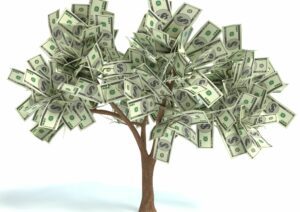The Psychology of Money Summary
The Psychology of Money is a magnificent book. It explains the strange ways that people think about money.
Table of Contents
It elucidates how we can make better associations with money and make wiser financial decisions.
Psychology means the study of the mind on both conscious and subconscious levels.
If we know the psychology of money, we can do wonders in this life. So, let us understand this through the review of this book.
This book has 19 lessons from which I am duching some of my favorites.
Lessons To Learn From Book
This magnificent book teaches us many lessons.
If we follow and implement these lessons in our lives, then we can never stay empty-handed.
Some of the lessons are discussed below:
True Wealth Is What You Don’t See
It is the first lesson that describes how we can’t see true wealth.
If we see someone’s big house, car, glory, or expensive vacation, then we have seen the outcome, but what is the cost (behind it)? What is the loan amount? We do not perceive how much a person is taking to get that car, house, or vacation.
So, here the author tells us that we are inadequate to discern true wealth.
Here, society has fed in our mind that success means money and money means richness and richness means how much money you can show that is the criteria to decide your success, your richness.
If you do not spend then how will it show that you are successful, you are rich?
But, the psychology of money says that what you spend is an expenditure that is not wealth.
This is highlighted by the author but what perception we have made is that how much anyone spends shows richness and success.
This perception is wrong.
The author says that the expenditure makes you poor as money is spent. So, the association that we have made to show off money is wrong. True wealth never shows, what shows or is visible is the expense.
Difference between rich and wealthy

- The money in your bank account will beautify your life. This is wealth.
Being rich means you have a high current income. However, you spend it on buying depreciation toys.
Remember, these depreciation toys will never increase your money.
So, take yourself from this perception fed by society to spend money to show that you are rich.
- Realize, that the more you spend the more you lose wealth.
This is just a trap fed into our minds that to become rich we have to expense it.
- Shift your control on wealth creation which is a step towards wealthiness.
Being rich offers you chances in the short-term, but being wealthy provides you the ease of having more of the items you want – freedom, time, possessions – in the future.
- In chapter 9, the author says that the expense to show others is the easiest way to become poor and society also validates that how much you expense shows how rich you are.
Instead, the one who is expending is depreciating his money.
Build a passive income for money
 In this book, there is one hidden message and that is to ask yourself why you want to earn money?
In this book, there is one hidden message and that is to ask yourself why you want to earn money?
Suppose you earned $400 from somewhere then ask yourself what you want to do.
Either you want to buy a car, spend it on vacation, buy a mansion or you want to invest somewhere to get passive income monthly so that your life can run smoothly.
The answer to this question will tell what your psychology toward money is.
We can buy slavery, or we can buy freedom from money.
Yet, the fact is that unconsciously, we are buying our slavery instead of freedom.
- Freedom is a blend of 4 things- time, work, location, and decision.
If we buy a car then we will have no time as we have to work more to earn money as we have expended the money.
We can’t go on vacation (location) as we have to work and we can’t make the desired decision.
- Mostly, depreciating toys, like buying mansions and fancy cars are done to get respect and admiration from others.
They are not needed.
That does not mean you should not buy a car or a house or go on vacation, but first, build a passive income.
- Merely buy it when you can afford it.
Afford means when you buy anything tension-free, without thinking about money, like if you purchase a bar of chocolate for a kid, and it falls, you say no worry, you buy another without a second thought. Nevertheless, if you buy a car and it gets destroyed, can you say no worries, I will buy a new one?
Work on the intellect for earning money
Another lesson from this book is that we pay a prize for everything.
- Every benefit has a cost. Nothing is free.
When you buy a house, a car, or anything, it has a prize label. However, there is something whose label or price tag is not visible, and if you invest in it, you can make a lot of money, and that is your mind.
- Work on your intellect, and learn new things. If you don’t pay for this prize, you may suffer.
Afterward, you may regret that you have the same potential as those earning a lot.
So, if you do not invest in intellect, you pay a massive price.
Hence, this price tag is invisible. That may be the reason to stay poor.
Know when you are enough
 The best lesson of this book is when the author says that you all must know when you are enough.
The best lesson of this book is when the author says that you all must know when you are enough.
We know it’s enough for everything like food, exercise, or fun, but we do not understand enough for money.
What happens when a person has surplus money but does not have health and time to spend that money?
Decide which and how much money is enough for you.
So that, you can stop selling your time and hampering your health for money.
Add and decide enough for the money.
The author says we move our goalposts forward. If your goal is 2 million and you reach it, after that, you make it 20 million.
The biggest reason for this is social comparison.
The author confers the example that one baseball player earns 5 million dollars a year. He is wealthy by any definition.
However, another basketball player on his team has signed a 12-year contract with some team for 430 million dollars, so he is getting 36 million dollars a year.
So, the one earning 5 million dollars a year thinks he is not rich because of this social comparison.
The author makes it extremely clear that enough does not mean that you stop working or earning, but do not hamper your health. Do not share your extra time, and do not put your reputation at risk for earning more.
Enjoy life and the time with loved ones.
Do not miss to read this incredible book.



